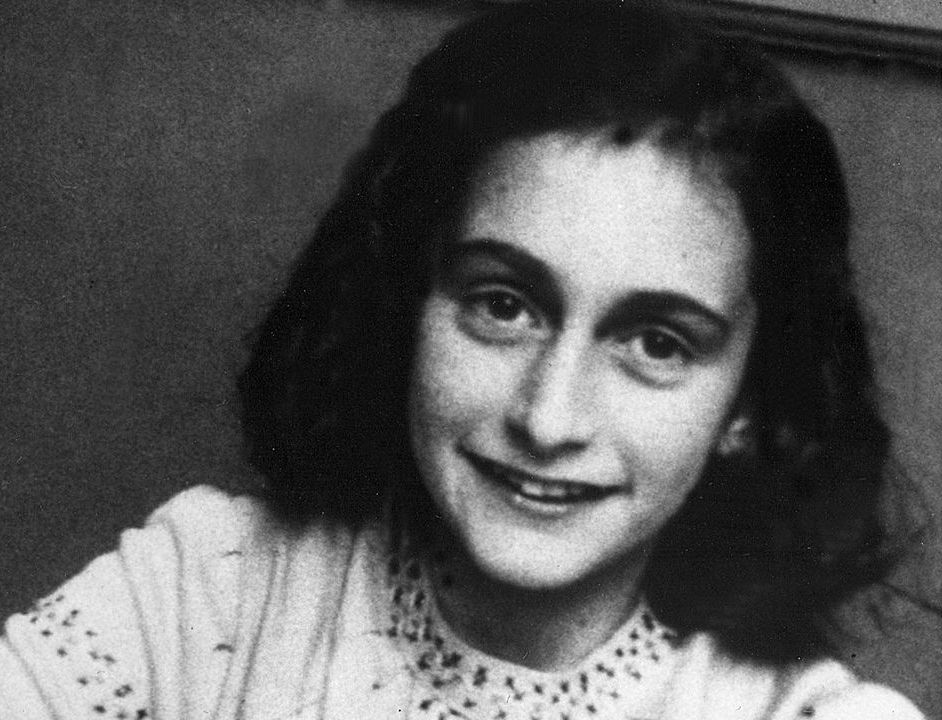Hero #051: Anne Frank … (04/13/16)
Anne Frank was a German-born diarist who became one of the most discussed Jewish victims of the Holocaust after the posthumous publication of her Diary of a Young Girl (originally entitled The Secret Annex). In this diary, Anne documents her life from 1942 to 1944, the years she and her family spent hiding from the Nazis during the German occupation of the Netherlands in World War II. It is still one of the world’s most widely known books, and has been the basis for several plays and films.
Though she was born in Germany, Anne lived most of her life in or near Amsterdam, having moved there with her family at the age of four and one-half when the Nazis gained control of her homeland. By May of 1940, when Anne was 11, the Franks became trapped in Amsterdam by the German occupation of the Netherlands. As the persecution of the Jewish population there increased in July of 1942, the family went into hiding in several concealed rooms located in the building where Anne’s father had worked. Four employees of the business were the only ones who knew of the family’s whereabouts, and those four secretly provided for the family’s need, and were the only contact the Franks had with the outside world for the entirety of their two-year stay. Anne had received her diary from her father shortly beforehand, and made regular entries therein until the family was finally arrested by the Gestapo in August of 1944.
Following their arrest, the Franks were transported to various concentration camps, including Auschwitz, where Anne (who had just reached the age of 15) became one of the youngest people spared from the gas chambers from her transport train. Finally, during the latter months of 1944, Anne and her sister were transferred from Auschwitz to Bergen-Belsen concentration camp, where they subsequently died (probably of typhus) a few months later.
Frank’s father, the only survivor of the family, returned to Amsterdam after the war and found that Anne’s diary had been saved by one of the family’s original helpers, Miep Gies. The diary was then published in 1947 in Dutch, in 1950 in German & French, was translated into English in 1952, and has since been translated into over 60 other languages … After receiving a humanitarian award from the Anne Frank Foundation in 1994, Nelson Mandela addressed a crowd in Johannesburg and said that he had read Anne Frank’s diary while in prison and that he had “derived much encouragement from it.”
“It’s really a wonder that I haven’t lost all my ideals, because they seem so absurd and impossible to realize. And yet I keep them still, because in spite of everything I still believe that people are really good at heart … Human greatness does not lie in wealth or power, but in character and goodness … How wonderful it is that nobody need wait a single moment before starting to improve the world … Just look at how a single candle can both defy and define the darkness … In the end, the sharpest weapon of all is a kind and gentle spirit.” ~ Anne Frank





 ;
;